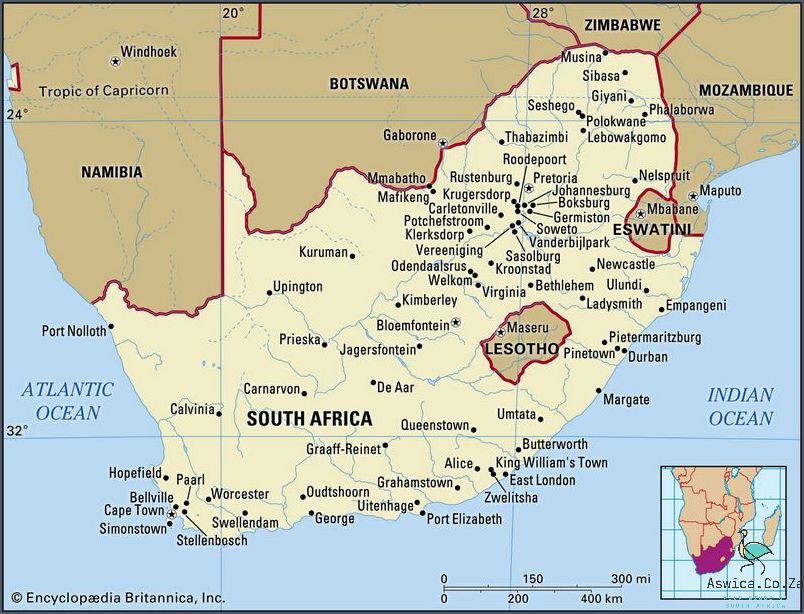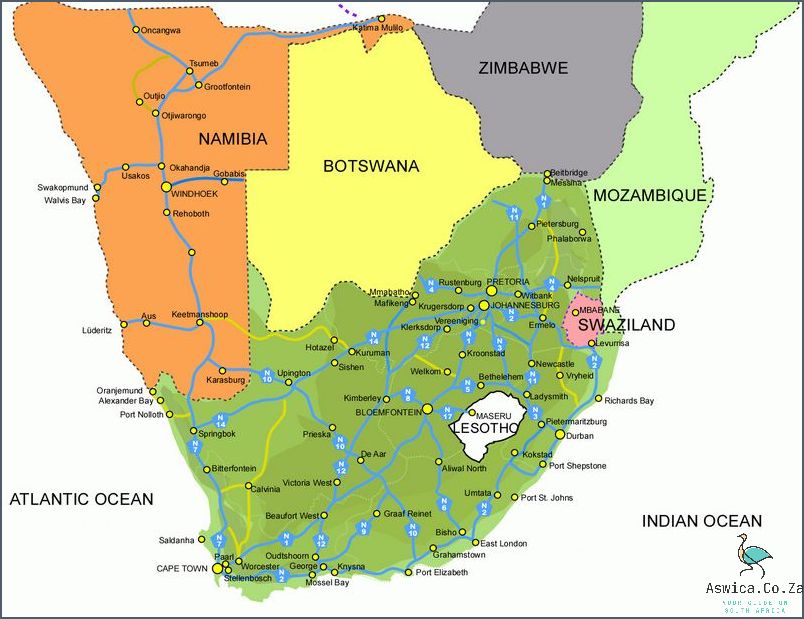
South Africa has a long and complex history of political activity and its impact on the country is far-reaching. Political activities in South Africa have been heavily influenced by its political landscape, which has evolved over time in response to the changing conditions of the country. Since the late 19th century, the political landscape of South Africa has been shaped by a number of factors, including the Boer War, the apartheid system, and the transition to democracy.
In the 19th century, the Boer War was a major factor in shaping the political landscape of South Africa. This war, which pitted British forces against the Boer states of the Orange Free State and Transvaal, resulted in the victory of the British and the annexation of the Boer states. The war resulted in the adoption of a British-style government and the introduction of colonial policies, which had a significant impact on the political landscape of the country.
The introduction of the apartheid system in 1948 had a major impact on the political landscape of South Africa. This system of racial segregation, which was enforced by the National Party government, had a profound impact on the country and its people. The apartheid system restricted the rights of the majority black population and led to widespread discrimination and
Contents
How Have Political Activities Shaped South Africa
The political activities that have shaped South Africa over the years have been varied and complex. From the era of colonialism and apartheid to the dismantling of these oppressive systems and the introduction of democracy, South Africa has undergone a tumultuous shift in its political landscape. These changes have been largely shaped by the anti-apartheid movement, which organized protests, strikes, and boycotts in order to bring about fundamental change. The African National Congress (ANC) has been a major force in driving these changes, leading South Africa out of apartheid and into a democratic society. In addition, the Truth and Reconciliation Commission was put in place to help address the gross human rights violations of the past, furthering progress towards a more equitable society. All of these political activities have helped to give South Africa the shape it has today and will continue to shape its political landscape in the years to come.
Apartheid Era and its Impact on Political Activity
The legacy of the apartheid era in South Africa continues to have a profound impact on political activity in the country today. The apartheid era, which lasted from 1948 to 1994, was a period of institutionalized racial segregation and oppression that resulted in the denial of basic rights and freedoms to the majority of South Africa’s population. This period of political repression had a significant impact on political activity in the country, both during and after the apartheid era.
During the apartheid era, political activity was heavily restricted, with the majority of South African citizens denied the right to vote and to participate in any kind of political organization or activity. This resulted in a significant silencing of voices, with the majority of people unable to participate in the political process or to have any meaningful say in the decisions that would shape their future. The oppressive nature of the regime meant that those seeking to challenge the status quo were often met with violence and repression, leading to a culture of fear among those living in South Africa.

This lack of political freedom and participation had a profound impact on the political landscape of the country after the end of the apartheid era. The first democratic election in South Africa in 1994 saw the election of the African National Congress (ANC) as the ruling party, and the ANC has been in power ever since. The ANC was at the forefront of the struggle against apartheid, and its victory in the 1994 elections marked a new era of freedom and democracy for South Africa.
Since then, political activity in South Africa has become increasingly vibrant, with a wide range of political parties, organizations, and movements competing for power and influence. This has led to a more dynamic and contested political landscape, with a greater diversity of voices being heard and represented in the political process. The end of the apartheid era also saw the introduction of a new constitution that enshrines the rights of all South Africans and protects the right to freedom of speech, assembly, and expression. This has made it easier for ordinary citizens to participate in the political process and to make their voices heard.
The legacy of the apartheid era continues to shape political activity in South Africa today, with the country’s political landscape still reflecting the divisions that existed during the period. Despite the progress that has been made in the last 25 years, there is still a long way to go in terms of achieving true political freedom and equality for all South Africans. Political activities continue to play an important role in the struggle for a more just and equitable society, and the legacy of the apartheid era continues to have an impact on the political landscape of South Africa.
Post-Apartheid Political Activity in South Africa
Since the end of Apartheid in South Africa in 1994, the country has undergone a massive transformation in the way it is governed. This has been the result of a variety of political activities that have taken place in the country since then. These activities have had a huge impact on South Africa’s political landscape, and have been instrumental in shaping the nation’s current state.
The end of Apartheid marked the start of a new era for South Africa, in which racial discrimination was officially abolished, and citizens of all backgrounds were granted full civil and political rights. This monumental shift was brought about by a series of political activities by the African National Congress (ANC), which was the main liberation movement during the Apartheid years. The ANC was instrumental in negotiating the end of Apartheid with the government, as well as in pushing for the implementation of a new, non-racial constitution.
In the years following the end of Apartheid, South Africa saw the rise of a variety of political organizations and movements. These included the Congress of South African Trade Unions (COSATU), the United Democratic Front (UDF) and the South African Communist Party (SACP). All of these organizations played a significant role in the country’s political landscape, pushing for reforms and working to ensure that the rights of all citizens were respected.
The main political activity in South Africa since the end of Apartheid has been the election of a new president. In 1994, Nelson Mandela was elected as South Africa’s first black president, and since then, the nation has held regular elections to choose a new leader. These elections have seen a variety of candidates from different political parties running for office, and have resulted in a number of landmark decisions, such as the decriminalization of homosexuality and the legalization of same-sex marriage.

In addition to the elections, South Africa has also held a series of referenda in the past two decades. These have included referendums on the creation of a new Constitution, the introduction of proportional representation into the electoral system, and the adoption of a new national flag. All of these referenda have helped shape the nation’s political landscape and have been instrumental in bringing about significant changes in the country.
Overall, the various political activities that have taken place in South Africa over the past two decades have helped shape the nation’s current state. From the end of Apartheid to the implementation of landmark reforms, these activities have been instrumental in transforming South Africa into the vibrant democracy it is today.
Recent Developments in Political Activity in South Africa
South Africa has seen a surge in political activity in recent years, as the nation continues to grapple with its tumultuous past and strive for a better future. From the popularization of the #FeesMustFall campaign to the growth of the Economic Freedom Fighters (EFF) party, South African citizens are becoming increasingly involved in the political landscape.
The #FeesMustFall campaign, which began in 2015, has become a symbol of the ongoing struggle for free education in South Africa. As a result of the campaign, universities across the country have been forced to reevaluate their tuition and fees policies, and some universities have even implemented tuition-free policies. The campaign has not only had a major impact on university fees, but it has also brought attention to the broader issues of inequality and access to education in South Africa.
The EFF, founded in 2013, has become one of the most influential political parties in South Africa. The party stands for economic transformation and focuses on issues such as land reform, nationalization of the South African Reserve Bank, and economic justice. The EFF has gained significant support from a wide range of South Africans, particularly young people, and has become a major presence in South African politics.
In addition to these two major forces, there have been a number of other political developments in South Africa in recent years. The Democratic Alliance (DA) party has become increasingly popular, and the party has become the official opposition in the National Assembly. The ANC has also seen a decline in support, as the party struggles to regain the trust of South African citizens.
Overall, political activity in South Africa has become increasingly vibrant in recent years. The #FeesMustFall campaign and the growth of the EFF have had a significant impact on the nation, and other political parties have also seen increased support. As South Africa continues to grapple with its history and strive for a better future, the nation’s political landscape is sure to remain an important area of focus.
Conclusion
In conclusion, political activities have had a profound impact on South Africa throughout its history. From the Apartheid regime to the dismantling of such oppressive systems, to the establishment of a new democratic government, political activities have been integral to the development of the nation. The process of democratization and the promotion of human rights has led to a more open and inclusive society, while the country’s economy has been strengthened by its commitment to the rule of law. Through the work of the ANC and other political parties, South Africa has made great strides in improving its economy, providing basic services, and protecting its citizens from injustice. Political activities continue to shape the nation, as South Africans work together to build a better future for themselves and their families.




